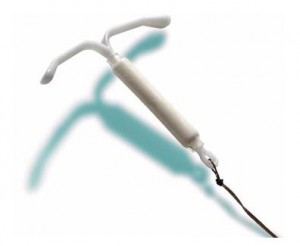FREE MIRENA CASE EVALUATIONS: CALL 1-800-632-1404
Our team of attorneys are now investigating claims and prepared to file Mirena lawsuitsinvolving the intrauterine contraceptive device Mirena®. Manufactured by Bayer Healthcare Pharmaceuticals, Inc., Mirena is an IUD device [intrauterine device] that must be inserted by a trained health care provider and is intended to provide contraceptive protection for up to five years. Some women have experienced serious adverse side-effects and potentially life-threatening complications following the implantation of theMirena device, including perforation of or imbedment in the uterus.
Mirena has a small amount of synthetic progesterone hormone that goes into the wall of the uterus. Women who use the Mirena device have lighter, less painful menstrual periods. Some women may have light, irregular bleeding or spotting throughout the cycle. Others have no menstrual periods at all. A few women have mood changes, less enjoyment of sex, or headaches due to the hormones in Mirena, but this is not common.
Uterine Perforation
Another side effect of using the Mirena device is uterine perforation. The main dangers of such uterine perforation include bleeding and trauma to the abdominal viscera as well as damage to internal organs such as bowel, omentum, mesentery, ureter and fallopian tube.
Fertilization
The fallopian tubes are an integral part of the reproductive system. It plays an important part in the woman becoming pregnant. She must have at least one functioning fallopian tube. Typically she will ovulate every twenty-eight days or so, and this will take place towards the middle of the cycle when the mature egg will be released from the follicle on either her right or left ovary. The fallopian tube will pick up the egg which will start a slow journey down it. Within twenty-four hours of release, the egg will be positioned ready to receive sperm. After sex, sperm are normally deposited at the cervix in hundreds of millions. The sperm that arrive at the ampulla, the site of fertilisation, must have undergone an epic journey through the cervical mucus, across the uterus and through the fallopian tube. Once the sperm finds the egg, it will penetrate the egg. Fertilisation has occurred and the fertilised egg, now described as an embryo, will begin to grow. Within forty-eight hours, the embryo will have divided twice to form a four-cell embryo. At this stage the embryo is still located in the fallopian tube.
Infertility
Any damages to or defect in the fallopian tubes can cause infertility in the woman. Women use the Mirena device as a contraceptive to prevent pregnancy but they can remove the device if they intend to get pregnant. However if the Mirena device has perforated the uterus and the uterine perforation has caused damage to the fallopian tubes, then the woman suffer from infertility and will have problems getting pregnant.
FOR A FREE CASE EVALUATION:
CALL TOLL FREE: (800) 632-1404
EMAIL: clicking here.
FILL OUT THIS FORM FOR FREE HELP:
NOTE: Our team of attorneys will review potential cases for all fifty states, including Alabama Alaska Arizona Arkansas California Colorado Connecticut Delaware Florida Georgia Hawaii Idaho Illinois Indiana Iowa Kansas Kentucky Louisiana Maine Maryland Massachusetts Michigan Minnesota Mississippi Missouri Montana Nebraska Nevada New Hampshire New Jersey New Mexico New York North Carolina North Dakota Ohio Oklahoma Oregon Pennsylvania Rhode Island South Carolina South Dakota Tennessee Texas Utah Vermont Virginia Washington West Virginia Wisconsin and Wyoming.
